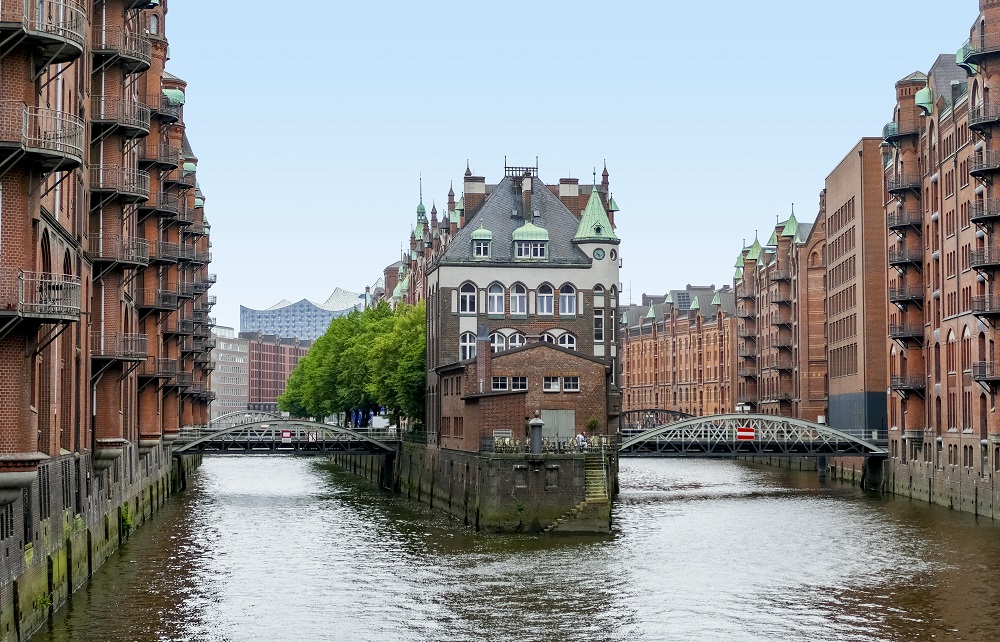As I wind up my six-month sabbatical (Jan-June 2022), I look back fondly on two visiting scholarships that I undertook: one at the University of Maryland – Baltimore County (UM-BC) (two weeks) and one at the University of Hamburg (two months). Perhaps I missed a memo, but as an emerging scholar, I was not aware of the how and why of visiting scholarships and rather stumbled into my first through a grant opportunity meant to support faculty in making international connections. Since then, I have learned that academics use visiting scholarships to familiarize themselves with a different academic context, access different people and events, and most importantly, have meaningful discussions about important research topics of mutual interest. My elaboration here may be motivating for other academics considering visiting scholarships.
My UM-BC visit coincided with the final defense of an MA student, whose committee I was on. As both of our universities were coming out of COVID-19 pandemic restrictions, this defense marked the first in-person defense I had participated in since before the pandemic. The interaction order (i.e., ways of doing) of defenses at UM-BC, in particular in the Department of TESOL, differed slightly from what I was used to. How easy is it for us to say that there is only one way to do a thesis defense? I enjoyed the pageantry that went with this defense (e.g., tablecloths, banner, reception afterwards), but I was challenged by the large audience and less formal structure (e.g., more free-flowing questioning). This defense was probably the best example of learning about a different academic context as the university was otherwise relatively quiet with many faculty still working from home.
Visiting scholarships provide opportunities for networking and serendipitous learning. Not only do I arrange to meet with local academics, but in Hamburg there are often other visiting scholars who enrich my visit. This past stay, I met with Carole Bloch who works with early literacy in South Africa and later Liesel Ebersöhn, who heads a Center for the Study of Resilience, also in South Africa. Carole and I spoke about the current misunderstandings around reading instruction for children and Liesel told me about a children’s story writing campaign her center is supporting. Both scholars provided me with food for thought for my upcoming grant application into determining what makes appropriate reading materials for early German reading instruction in bilingual schools. Further to that project, I was able to visit a number of German scholars in the area of reading instruction. Additionally, I got a last minute invitation to a conference on early reading books which brought together colleagues from German teaching and German literature to discuss the topic I am interested in, but from the standpoint of teaching German in Germany. This access to different people and events would be unlikely from afar, so I am very appreciative of this visiting scholarship for its networking and serendipitous learning.
While I had many meaningful discussions with the scholars I met for the first time, I especially prize the ones I had with my hosts. My visit to UM-BC was hosted by Francis Hult, a full professor who has served as a mentor ever since he sat as the external examiner on my PhD defense. My UniHamburg visit was hosted by Drorit Lengyel whom I have been working with more and more since my first visit to Hamburg. Francis spent considerable time with me, for which I have very grateful. He introduced me to colleagues, showed me around the university, and made arrangements for my official status (which included free rides on the shuttle!). Most importantly, I could ask him all those methodological questions I had been pondering, since we both work in educational linguistics. Drorit and I met formally and informally several times over my two months in Hamburg. We wrote a grant proposal for a joint online course between our universities, planned for an upcoming conference presentation and article, and she too paved the way institutionally for me to have an office and access to library materials. Both hosts had me over for supper to their own homes – a real treat to visit with their families as well. The role of the host is crucial in making the visiting scholarship a success – a shout out to both of them for their excellent hospitality!
With these opportunities behind me, I return to my regular work recharged. I have pages of notes and dozens of articles downloaded. I have a few books tucked away to read in full and tons of ideas floating around in my brain. I will use the buffer before teaching starts up to get more of these ideas down on paper. Visiting scholarships are so much more than the line of the CV indicates.


